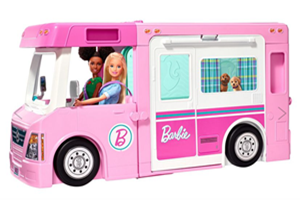Question
You write in one of your articles, “If the employer could avoid hiring you or anyone else, he would. He doesn’t want to create a job. He wants to produce more profit.”
While that may be true for some employers, or at least for sales jobs, I have my doubts it is true for even 20% of the jobs out there.
In my opinion, most jobs exist to solve a problem, but that’s not always “to increase the bottom line.” Sometimes these problems are just mindless corporate B.S. Sometimes a hiring manager just needs a “warm body” to dump stuff on. Sometimes hiring managers don’t want a superstar. They’re happy with a mediocre person, for whatever reason. Sometimes managers are looking to hire simply because they have a budget and get a massive ego-boost saying they are responsible for X number of people, or doubled in size in a few months, etc.
For example, a publicly owned company is rarely looking for talent that would increase the bottom line. Who cares? The company isn’t owned by anyone; it’s owned by the public, so let’s milk that baby while I can, while I am in my seat, and just do what’s going to fly so I can stay in this seat as long as possible.
I offer no conclusion. Perhaps I am only rambling, but my point is, yes, I agree with you, there is a reason to be hired, but “to produce more profit” is rarely the case and just one use case. Think of a technology manager that is expected to build a product. He just wants to hire capable people, and doesn’t care about profit. If an engineer comes in and shows the hiring manager he knows his stuff, he is hired. If that engineer on the other hand comes in and starts talking about increasing the bottom line, the manager will just think, “Who the hell cares? I just need a guy that fixes my scaling problems!”
Anyway, this is just my two cents. I believe that, for jobs like sales, “increase profit” may be a more common goal. But in jobs such as technology, consulting, and back office? Meh.
Nick’s Reply
You raise a really important issue that I wish the entire business world would face head-on: Why do we hire people? I think that businesses with more than about 20 employees forget the real answer to that question because they forget why they exist. They forget what everyone’s job really is.
What you say is entirely true. Most jobs are created and filled for reasons that have little or nothing to do with producing more profit. You’re right! A job seeker doesn’t need to address how they would add profit to the bottom line, and they can still get a job.
The manager’s “requirement” might be nothing more than using up the hiring budget, or to hire a “go-fer” to do menial tasks, or to boost the manager’s ego by increasing the size of the operation.
Profitable work
So, why do I harp on this profitability component when job hunting or hiring?
Here’s the best way I can express it: Every job exists to create an outcome that has more value than what was put into getting it done. We don’t start an enterprise to squander money, effort or other resources. We dedicate ourselves to doing profitable work.
If a job does not contribute to a company’s bottom line, or profit, it should not exist. (Of course, many jobs don’t meet this criterion.) If you cannot explain or show how your job (and the work you do) affects profit, you should quit before you get fired for being superfluous. If a manager does not understand how (or whether) a position under their auspices affects company profits, they should eliminate the job.
(Profit can be measured in dollars, customer satisfaction, repeat business, quality or any metric that shows a business is meeting its objectives. The work must yield more of something desirable than is put into it.)
I believe loads of unprofitable jobs continue to exist because most companies are so out of control that they stopped considering profitability at the job level. That’s a huge mistake that I believe is at the core of our economic woes. Every job must, in its own way, help produce profit. The kicker is, managers and employees must understand how.
Are you revenue or cost?
Business guru Tom Peters once suggested that a company larger than 11 employees was untenable. He later upped it to 25. He reasoned that 25 people all know what everyone else is doing. They all feel responsible for and accountable to one another. It’s pretty easy to see how each contributes to success and profitability. When a company gets bigger, accountability is diluted. There’s more chance marginal workers will be hired, unnecessary jobs will be filled, and that some employees will not do their jobs.
As you put it, the attitude becomes, “Who cares? The company isn’t owned by anyone; it’s owned by the public, so let’s milk that baby while I can.”
As you also point out, the connection to profits is rather obvious with sales jobs — but that’s only because we associate revenue with profit. People that work in jobs like manufacturing or shipping will claim they have nothing to do with revenue or profit — they’re overhead cost. But every job affects either costs or revenue (or both). That means every job affects profit because every job is a company’s attempt to prosper more.
What is profit?
The profit equation is simple:
REVENUE-COSTS=PROFIT
An accountant or finance person might scoff at that because, of course, each of the terms on the left comprises many factors. But in general, that’s the accounting.
If your job (e.g., sales) seems to affect mostly revenue, you’re more likely to understand your role in profitability. If you work in quality assurance (QA) or on the computer help desk, it’s easy to see how your work represents a cost to your employer. However, all those jobs affect the equation. Do your job thoughtfully and well, and you help increase revenues or decrease costs — hence you help boost profits.
If a help desk worker can successfully close more problem tickets, that brings costs down. When a QA engineer examines a product design more effectively, costly failures are reduced. When a salesperson closes more sales by developing more product expertise, that boosts revenues. All three employees have affected profits.
The challenge, of course, is how do you calculate your impact on revenues and costs? Few companies understand how every job impacts the bottom line, as if it doesn’t matter. Many can’t even track P&L (profit and loss) of entire divisions or departments, much less individual workers.
That’s why their hiring practices are so screwed up.
Foolish ignorance
That’s what’s wrong with business. This is a big reason why companies fail. It’s also why good workers get laid off and why mediocre job candidates get hired. It’s why companies often have open jobs that shouldn’t even exist. But, rather than sit down and work this out, most companies prefer to remain ignorant of what is perhaps the key metric of success. They find it easier to “throw bodies” at nebulous “problems.”
That’s foolish.
If you and your manager can’t explain how your job contributes to the bottom line by reducing costs and/or increasing revenues, you’re revealing a dangerous kind of ignorance. Neither one of you is going to have a job for long. You may be able to “hide” for a time, but not forever. My suggestion is, go meet your company’s Chief Financial Officer (CFO) and ask for some insight on how your department affects the bottom line. Then discuss how your job affects it. When a company’s total bottom line shrinks or goes negative, it’s because nobody’s watching whether divisions, departments, teams, managers and individual workers are doing profitable work. How your CFO responds may tell you a lot about the prospects of the company.
Every job is one job
Why do companies hire? Despite how critical a factor profitable work is to a company’s success, most companies don’t care whether a job candidate can show how they will contribute to the bottom line. They hire blindly. Most job applicants don’t care whether or how the job they’re interviewing for contributes to the success of the whole. This makes a fool of the manager, the job seeker, the company, and its investors.
So in response to your suggestion that we need not worry about who does or doesn’t do profitable work because employers don’t — I say we do. Fundamentally, every job is really the same job and its title is Profit Maker. Companies should hire only to fill such jobs.
Our bottom line here is this: Why would any job seeker want to throw their lot in with a manager and a company that doesn’t understand or measure whether a job is profitable? It’s a slippery path to one dead-end job after another, and ultimately to a failed career. For a company, it’s one of a thousand cuts that leads inexorably to bankruptcy.
And it all starts with understanding the purpose of a job.
When managers roll their eyes at a job candidate (or employee) who cares to discuss how a job contributes to profit, that’s a signal for the candidate to walk out of the interview. That’s a signal to go find a better-run company that’s going to blow the manager’s company out of the water.
Is it wise to accept a job when you don’t know how it contributes to the company’s success and profitability? Is it wise to hire someone without exploring how they can help make your company more successful? How would you explain your job’s contribution to your employer’s bottom line?
Challenge: Can someone explain how all this is true for non-profits, too?
: :




 A hand shot up. (I encourage people to interrupt me because this is Ask The Headhunter, after all!)
A hand shot up. (I encourage people to interrupt me because this is Ask The Headhunter, after all!)
 Never subject yourself to pressure from a recruiter, simply because a good recruiter will never pressure you.
Never subject yourself to pressure from a recruiter, simply because a good recruiter will never pressure you.
 Before I address your ire, I want to explain why this problem is relevant to all job seekers: Know how frustrated and upset you get when a recruiter gets you on the hook about a “perfect” job — then the “opportunity” goes nowhere? Some of the time, it’s because the recruiter has no contract with the employer, and thus no authorization, to submit candidates like you. The employer simply refuses to interview you. And the recruiter is simply using the job as bait to gather more information about you so they can submit you for other jobs that aren’t so perfect and waste more of your time.
Before I address your ire, I want to explain why this problem is relevant to all job seekers: Know how frustrated and upset you get when a recruiter gets you on the hook about a “perfect” job — then the “opportunity” goes nowhere? Some of the time, it’s because the recruiter has no contract with the employer, and thus no authorization, to submit candidates like you. The employer simply refuses to interview you. And the recruiter is simply using the job as bait to gather more information about you so they can submit you for other jobs that aren’t so perfect and waste more of your time.
 Four years ago, three co-workers and I bought the software development firm we worked for, but business has slowed down and the company is failing. My 10 years working for this previously successful company is the only major work experience I have. How will an employer view a business failure? How can I sell my employment qualifications even though my own business isn’t succeeding?
Four years ago, three co-workers and I bought the software development firm we worked for, but business has slowed down and the company is failing. My 10 years working for this previously successful company is the only major work experience I have. How will an employer view a business failure? How can I sell my employment qualifications even though my own business isn’t succeeding?
 I bookmarked an article you wrote a few years ago:
I bookmarked an article you wrote a few years ago: 
 However, severance always serves the employer — it’s not a gift. It’s always a form of handcuffs because the agreement you sign will tie your hands in some ways.
However, severance always serves the employer — it’s not a gift. It’s always a form of handcuffs because the agreement you sign will tie your hands in some ways.
 I’m in the final phase of getting a job offer I really want. They already told me what the offer is, but they need to check my references before they deliver it in writing. I know my professional references are good but how do I really know what a former boss or colleague is going to say? Your advice will affect whose names I give out. Thanks.
I’m in the final phase of getting a job offer I really want. They already told me what the offer is, but they need to check my references before they deliver it in writing. I know my professional references are good but how do I really know what a former boss or colleague is going to say? Your advice will affect whose names I give out. Thanks.
 A new hire in my department resigned after two days at work. He took a counter-offer at his previous company where he had been 22 years.
A new hire in my department resigned after two days at work. He took a counter-offer at his previous company where he had been 22 years. 
 I’d like to ask you about questions recruiters ask. I had a call with a recruiter for a well-known recruiting firm. It was a “get to know you so we can potentially work together in the future” type of call. During our conversation the recruiter asks where my family lives. I tell her some of my family is in X state and my husband’s family is in Y. That being said, I am open to various locations. Then she asks where my parents live. In the moment I am thinking, does she really need this info? But I tell her they are not in the U.S. Then she asks, “So where are they?”
I’d like to ask you about questions recruiters ask. I had a call with a recruiter for a well-known recruiting firm. It was a “get to know you so we can potentially work together in the future” type of call. During our conversation the recruiter asks where my family lives. I tell her some of my family is in X state and my husband’s family is in Y. That being said, I am open to various locations. Then she asks where my parents live. In the moment I am thinking, does she really need this info? But I tell her they are not in the U.S. Then she asks, “So where are they?”